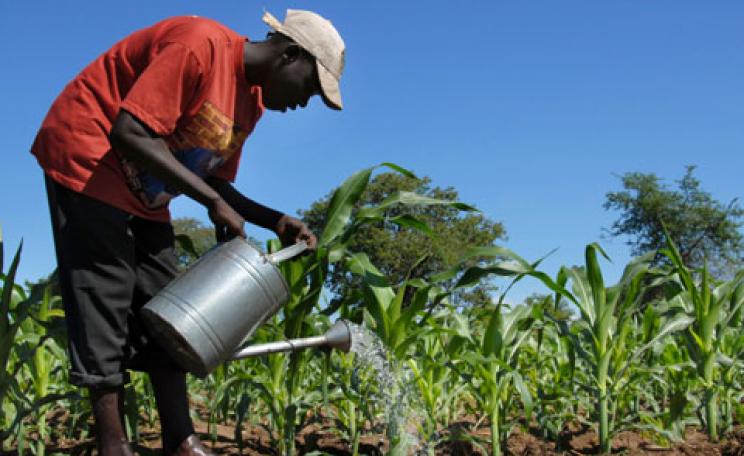Attempts to introduce genetically modify chickens, pigs, sheep and cows to be resistant to diseases like avian influenza (bird flu) would be a 'false solution' claim campaigners.
Researchers have successfully created chickens that can be infected with bird flu but do not transmit the infection to other birds - helping to prevent flu outbreaks spreading within and between poultry flocks.
The chickens have so far only been bred for research purposes but the scientists behind the study say it may soon be possible to genetically modify other farm animals to be resistant to certain diseases. Professor Helen Sang, from The Roslin Institute, who worked on the project with researchers from the University of Cambridge said the findings could quickly be used to breed resistance to swine flu in pigs because of similarities between the diseases.
However, campaigners say GM technological fixes do not tackle the underlying cause of serious disease outbreaks and in the case of bird flu would only be a short-term fix until the virus overcame the technical fix.
'The root cause of the problem is the millions of chickens kept in sheds worldwide, that are often kept alive long enough to reach slaughter age through the use of antibiotics, providing an ideal breeding ground for new, more resistant strains of disease. This GM fantasy simply tries to cover up for flawed farming practice,' said the Soil Association.
Dr Laurence Tiley, from the University of Cambridge, who also worked on the project, insisted the particular technique used to create the GM chicken would make it difficult for the virus to evolve resistance. 'This is quite different from conventional flu vaccines, which need to be updated in the face of virus evolution as they tend only to protect against closely matching strains of virus and do not always prevent spread within a flock,' he said.
Rather than looking for 'magic fixes', Genewatch director Dr Helen Wallace said we should be encourgaing more genetic diversity in chickens and despite the researchers claims, she believed the virus would eventually evolve resistance to the GM chickens.
Useful links
Study: Suppression of Avian Influenza Transmission in Genetically Modified Chickens
| READ MORE... | |
 |
NEWS US delays approval for fast-growing GM salmon Campaigners say approval for the genetically modified salmon would carry 'great risk' and pave the way for more GM animals to enter the market |
 |
NEWS ANALYSIS Contaminated eggs: industrial farming leading to dioxin-type food scares The latest food scare - the contamination of British eggs with the cancer causing chemical dioxin - can be linked to our reliance on complex food chains and industrial production methods, report Joanna Blythman and Tom Levitt |
 |
NEWS US calls for an end to the EU block on GM and nanotechnology US officials say they remain ‘surprised and disappointed’ over Europe’s refusal to embrace technologies like genetic modification (GM) and nanotechnology in farming |
 |
HOW TO MAKE A DIFFERENCE Transylvania: could this 'lost in time' land be the future of European agriculture? Transylvania has maintained traditional farming methods for hundreds of years. As it faces the twin threats of intensive agriculture and byzantine EU policies, its model of under-development is attracting the interest of policy makers |
 |
INVESTIGATION Lab grown meat: a low-fat, low-carbon, cruelty-free future? The technology isn't fully developed yet, but when meat really can be grown in a lab it's going to turn all our arguments about carnivorous diets on their heads... |








